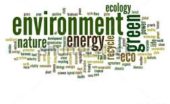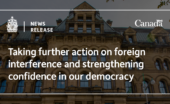Molly Minturn - My family is heartbroken to share that my father died in surgery on Monday, Feb. 10. It…
Wednesday Night #1966
Written by Diana Thebaud Nicholson // November 20, 2019 // Wednesday Nights // Comments Off on Wednesday Night #1966
November 19 is the anniversary of President Abraham Lincoln’s Gettysburg Address 156 years ago, one of the most inspiring and beautifully crafted documents in American history.
What a juxtaposition with the tweeted communications from the current occupant of the White House, and the spectacle of the Impeachment Inquiry hearings which, while mesmerizing, are hardly the stuff of great literature. Nonetheless, their existence is a testimonial to a continued democratic process. Despite the tone of some of the members of the Committee (e.g. Jim Jordan’s attack on the apparently unflappable Colonel Alexander Vindman), this is no Star Chamber. Nonetheless, if one follows the often vicious real-time comments on the hearings, it is obvious that there is a deepening divide among those who are watching, with Trump’s tweeted attacks on Marie Yovanovitch and Jennifer Williams amounting to intimidation. It is also deeply disturbing to learn that Alexander Vindman may require protection for his family from the Army.
For those who prefer non-American media coverage of the hearings; we can recommend Al Jazeera (yes!) for a complete narrative.
Meanwhile, civil unrest is spreading around the world.
In Hong Kong, the situation is increasingly worrying ; The Guardian’s Avery Ng writes that “over the weekend, soldiers of the Chinese People’s Liberation Army “volunteered” to leave their base in Kowloon to help clean up the roadblocks near a university. This could be a violation of the Basic Law – which doesn’t allow PLA interference with Hong Kong affairs unless requested – and is a blatant signal from Beijing that military intervention is a possibility”. Richard C. Bush of Brookings muses that “We are likely witnessing the end of Hong Kong as we know it”.
USA Today notes “ The escalation of the unrest in Hong Kong coincides with recent mass protests around the world. These protests – in Bolivia, Iran and elsewhere – are not connected and have different causes and aims. But they are loosely linked thematically in that they concern inequality, political freedoms, corruption and climate change.”
In Iran, following a dramatic increase in gas prices, violent protests have spread to a reported 100 cities and towns Monday. Al Jazeera reports that “An estimated 87,000 people took part in the protests, according to security officials quoted by the semi-official Fars news agency. Dozens of banks and stores were set on fire or damaged in violence surrounding the protests and about 1,000 arrests were made. At least two people, including one police officer, were killed.” The unrest seems to also be driven by widespread dismay over the ailing state of Iran’s economy, in which jobs are increasingly scarce and savings are evaporating amid inflation of more than 40 percent. Amnesty International states that at least 106 protesters in 21 cities have been killed. The organization believes that the real death toll may be much higher, with some reports suggesting as many as 200 have been killed. The authorities have implemented an ongoing near-total shutdown of the internet, shutting off nearly all means of online communications for people inside Iran. The resulting information blackout is a deliberate attempt by the authorities to prevent people from sharing images and videos of the deadly force being used by security forces.
Iraq’s protests continue. Stratfor’s analysis points out that “A growing sense of nationalism has marked the protests in Iraq, which began in early October and show little signs of dying out. Protests like the ones that have gripped Iraq for the past few months have been a fact of life in the country for years, if on a smaller scale. The current protest movement, like ones previously, has coalesced around some of the same long-standing issues of government corruption and a lack of economic opportunity. …what’s new this time around has been the undercurrent of anti-Iranian sentiment flowing through the protests. That has translated into a demand by some Iraqis to end the involvement of foreign interests perceived as interfering in the country — whether Iran or the United States or other powers including the Arab Gulf states and Turkey. But because of Iran’s high profile, both through its sponsorship of militia groups or its stature in regions of the country where Shiite Islam holds sway, it has been a particular target of protesters’ ire.”
The publication by the New York Times and The Intercept of Leaked Iranian Intelligence Reports Expose Tehran’s Vast Web of Influence in Iraq can only exacerbate the situation as Iraqi protesters say the leaks confirm what is already known about Iran.
In Lebanon on Tuesday, the 34th day of widespread anti-government protests, Protesters Shut Down Parliament and Clash With Police – Crowds blocked roads leading to government buildings to stop lawmakers from laws that critics fear could provide amnesty for past corruption.
It is worthwhile to read Robert Fisk’s 25 October piece on the role of Hezbollah
Finally, in Middle East news, the Trump administration has made a gift to Netanyahu with the announcement on Monday that the United States does not consider Israeli settlements in the West Bank a violation of international law, thus reversing four decades of American policy and removing what has been an important barrier to annexation of Palestinian territory. Canada, we are happy to say, voted for a UN resolution on Tuesday in support of Palestinians’ right to self-determination.
In Chile, despite the news that Chileans awoke on Friday to a historic agreement, signed by lawmakers and leaders of nearly every political faction and setting down the rules for a path to a new constitution thousands of demonstrators took to the streets of Santiago on Tuesday. Presumably, they are not happy with the timeline for reform, which includes a referendum in April, followed by a constitutional convention in October 2020.
In Bolivia, actions of the interim leader, Jeanine Añez, are not reassuring. And the crisis in Haiti continues.
In France, the Gilets Jaunes marked their first anniversary with violent demonstrations in Paris and in Spain protests broke out in Catalonia last month after nine separatist leaders were given long prison sentences for their role in an illegal referendum and declaration of independence in 2017. We remain concerned that the Madrid meeting of the UNFCCC could become a focal point for demonstrations.
In The Atlantic, Yasmeen Serhan writes that The Common Element Uniting Worldwide Protests is the deliberate lack of an appointed leader.
In their weekly panel, Jeremy Kinsman and Lawrence Haas comment on Hong Kong’s future and the shift in U.S. policy on the Israeli settlements.
As though the geopolitical concerns were not bad enough, news of natural disasters comes from Australia, where devastating wildfire conditions to worsen and from Venice where record flood water levels hit again on Sunday making this the worst week of flooding in the city in over 50 years. See Venice is underwater. Other major European cities could be next. The pictures are heartbreaking and the outlook is grim as “researchers worry that floods are set to worsen in Europe’s northwest, far away from the coastlines, according to an expansive recent study that focused on river flooding.”
Canada still looks like an awfully good place to live – our disputes remain pretty civilized and our federal (minority) government stable. On Tuesday night, as we awaited the announcement of the new federal cabinet, CTV’s Joyce Napier (a long-ago Wednesday Nighter!) offers some views on who will be in what position – her colleagues Glen McGregor and the Power Play panel, add more including Catherine McKenna’s move to Infrastructure, which has major environmental carry-over. Napier and McGregor (and/or their sources) agreed she will be replaced at Environment by Jonathan Wilkinson. The Power Play panel had very cogent comments. CBC weighs in, pretty much in agreement. It looks as though Bill Morneau, David Lametti and Marc Garneau will retain their portfolios, but there could still be some surprises.
UPDATE: PM announces new Cabinet – not much in the way of surprises, but much merriment over the new title of Minister of Middle Class prosperity.
Related Upcoming event: on 4 December, the CIC Montreal is collaborating with the CERIUM (UdM) for a discussion on Canada’s foreign policy. This will be a post-election/new cabinet discussion featuring
- Daniel Béland (McGill)
- Jocelyn Coulon (UdM, CERIUM)
- Aphrodite Salas (the one and only)
Details to follow soon
Long read:
CIGI’s paper China’s New Concept of Global Governance and Action Plan for International Cooperation The summary notes “The Asian Infrastructure Investment Bank and the Belt and Road Initiative are the best examples of China’s proactive concepts and plans for global governance reform.”
Check out how the BRI is likely to work out for Kenya in this article from the South China Morning Post: Will China seize prized port if Kenya can’t pay back its belt and road loans?
As always, we try to end on a lighter note: this time it is the parody of The Sound of Silence – enjoy!
Sounds of silence at Wednesday Night? Not likely, but the welcome is warm, if noisy.



